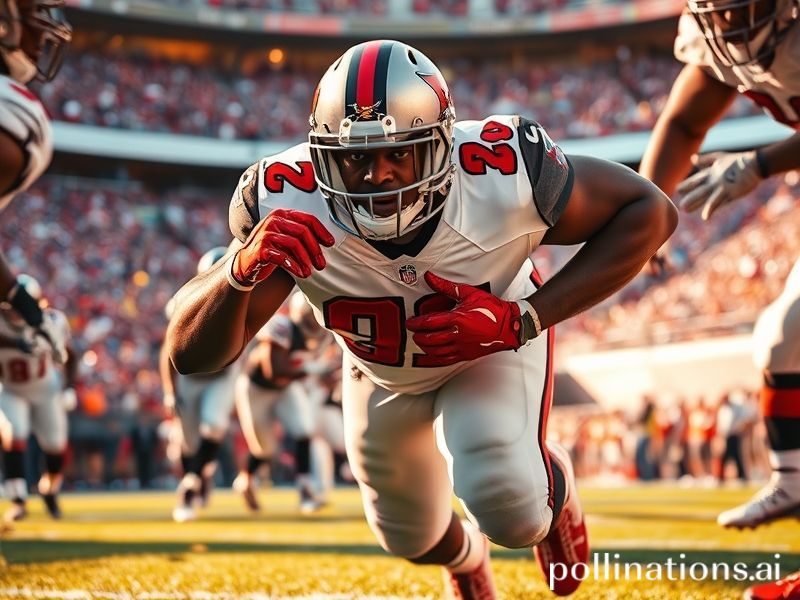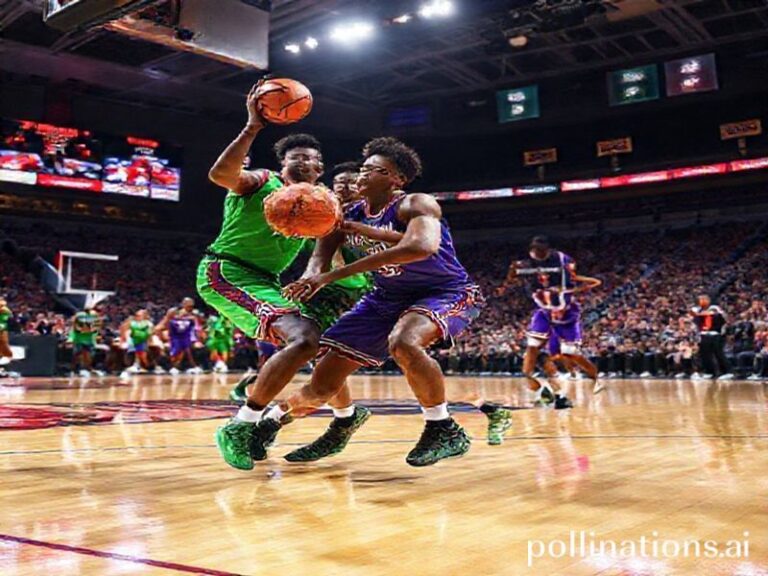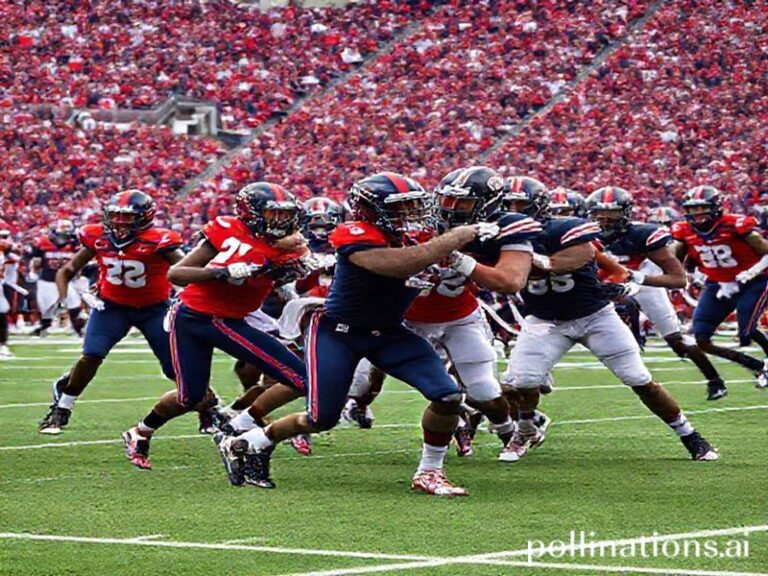American Nightmare: How Calijah Kancey Became the World’s Newest WMD (Weaponized Miami Dade)
From the cracked sidewalks of Miami’s Liberty City to the manicured lawns of Tampa Bay’s corporate coliseum, Calijah Kancey has become the latest avatar of America’s most reliable export: the improbably fast human missile. At 6-foot-1 and 281 pounds, he is what happens when someone weaponizes the phrase “low center of gravity,” then ships it abroad to remind the rest of the planet that the United States still dominates the global arms race in shoulder-pad diplomacy.
Europe is currently busy debating whether a soccer player should be allowed to wear a rainbow armband; meanwhile, Kancey is out here running a 4.67-second 40-yard dash, causing physicists on three continents to quietly update their models of what a mammal can do before breakfast. In Seoul, they’re live-streaming his combine footage to engineering students who treat it as a case study in applied torque. In Lagos, street vendors sell bootleg T-shirts that read “Cauchemar Américain” under a cartoon of Kancey folding an offensive lineman into origami. And in Geneva—because where else?—the International Olympic Committee is wondering if American football should be an Olympic sport, provided the IOC can first invent a helmet strong enough to keep Kancey from accidentally decapitating a Norwegian discus thrower.
The broader significance, of course, is that Kancey is not merely a football player; he’s a geopolitical metaphor wearing a pewter helmet. He’s the personification of a nation that still believes problems are best solved by accelerating 281 pounds of righteous fury through them. While China builds islands and Russia redecorates neighbors’ living rooms, America continues its long-standing policy of outsourcing existential dread to 21-year-olds who can bench-press a Vespa. It’s cheaper than aircraft carriers and considerably easier to monetize on Monday nights.
Scouts call Kancey “undersized,” which is the NFL’s charming way of saying he’s the same height as the average Dutch woman but with better closing speed. The league’s obsession with measurables has become a sort of imperial measurement system for human livestock: wingspan, hand size, vertical leap, and—most crucially—how quickly you can turn another man’s clavicle into a geometry lesson. All of this is dutifully logged into tablets that are manufactured in the same Chinese megafactories now studying Kancey’s tape for clues on how to mass-produce him. Expect a Shenzhen startup to unveil “KanceyBot 1.0” by 2027; it will run a 4.5 flat, unionize within six months, and demand overtime pay in Dogecoin.
Back home, the transaction is more intimate. The Glazer family—those transatlantic titans who also own Manchester United and, by extension, the weekly emotional collapse of half of England—paid for the privilege of aiming Kancey at opposing quarterbacks like a heat-seeking Roth IRA. Somewhere in Tampa, a marketing intern has already mocked up a promo in which Kancey tackles inflation itself, complete with CGI sparks and a voice-over promising that season tickets are “the only hedge fund you can tailgate.” Fans will believe it because fans always believe it; hope is the last commodity America never outsources.
And what of Kancey himself? He speaks in the polite, clipped cadences of a man who knows the cameras are always on, which is another way of saying he’s mastered the international language of brand safety. Asked about his global fan base, he offers boilerplate gratitude to “everyone who supports me,” which translators in four languages render as “I am aware the planet is watching.” In the age of the personal brand, humility is just another form of vertical integration.
Ultimately, Calijah Kancey is what the world gets when it asks America for its best: a compact, turbocharged reminder that the empire’s real talent isn’t democracy or jazz or even Hollywood endings—it’s the industrial-scale production of terrifyingly efficient young men who can sell you car insurance between sacks. The rest of us can only watch, place our bets, and pray the algorithm doesn’t decide to export a few clones to the Bundesliga. Because if the Germans ever figure out how to weaponize that kind of speed, the next World Cup final will be decided by blitz packages instead of penalty kicks. And nobody—absolutely nobody—is ready for a 280-pound Berliner who can chase down Mbappé before the croissants cool.







